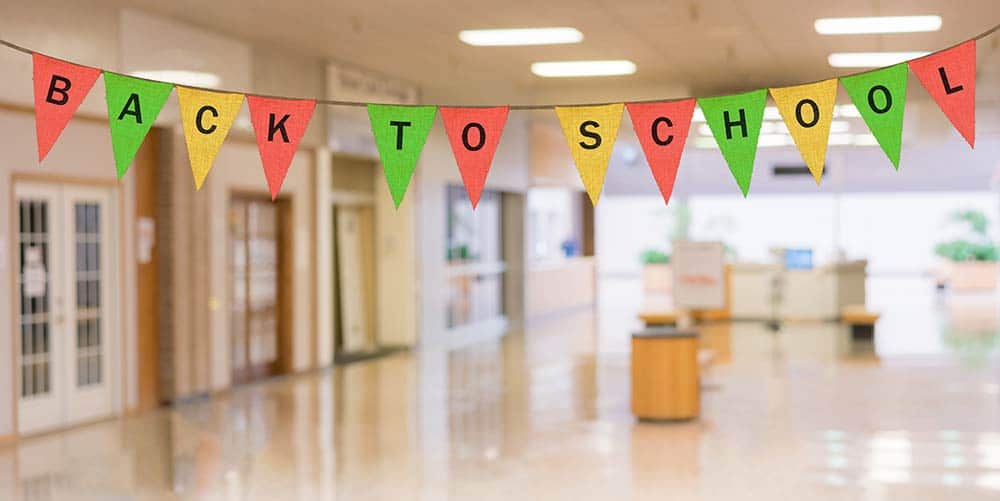 While many parents may already be familiar with secondary boarding schools, they may be less aware of junior boarding schools, which offer a supportive, structured setting for their younger students to learn and thrive. Junior boarding schools are specifically designed for students in upper elementary and middle school and provide a nurturing, age-appropriate space for academic and personal development. From a close-knit community to robust extracurriculars and weekend excursions, students at junior boarding schools experience all of the offerings of a secondary boarding school in an environment tailored to upper elementary and middle school youth. In this post, we talk to admissions directors and other administrators at five renowned New England junior boarding schools to hear about the unique benefits of these schools for younger learners.
While many parents may already be familiar with secondary boarding schools, they may be less aware of junior boarding schools, which offer a supportive, structured setting for their younger students to learn and thrive. Junior boarding schools are specifically designed for students in upper elementary and middle school and provide a nurturing, age-appropriate space for academic and personal development. From a close-knit community to robust extracurriculars and weekend excursions, students at junior boarding schools experience all of the offerings of a secondary boarding school in an environment tailored to upper elementary and middle school youth. In this post, we talk to admissions directors and other administrators at five renowned New England junior boarding schools to hear about the unique benefits of these schools for younger learners.
An Immersive, Connective Experience
Junior boarding schools offer a continuous, enriching experience geared for younger students. Days are structured with intentional programming, meals, and extracurricular activities. Weekends are designed so that students have a chance to explore, play, and learn in a more experiential way. One of the benefits of a junior boarding school is that students enter into a stimulating environment that most young people do not experience until they reach secondary school. As Christopher Loftus, Director of Admissions of Eaglebrook School in Massachusetts, explains, “The JBS experience is unique because students get an immersive experience of what they can expect their lives to be like at the secondary level. They get a peek at small classroom sizes, close-knit communities, strong student-teacher relationships, lifelong peer bonds, and high-level academics, athletics and extracurricular activities.”
Advisory
While younger students will generally be living away from home for the first time at junior boarding schools, they are surrounded by supportive adults and necessary structure. Lesley G. Gibbs, Director of Enrollment at The Rectory School in Connecticut explains, “Because it is often the first time students are away from home for an extended period of time, the most important aspect of a junior boarding school is the people who will be teaching and caring for their children.” At The Fessenden School in Massachusetts, boys are provided with an advisor with whom they check in at least once a day. Boys are matched with advisors who are deemed good fits based on their academic, social, and athletic profile. As Caleb Thomson, Enrollment Manager at The Fessenden School states, “There is constant communication between teachers, residential faculty, and the advisor to ensure that each boy is reaching his potential in all areas. Advisors are also in communication with parents about all matters.” The channels of communication are open between students, advisors, and parents, making sure that everyone is supporting younger students from all directions.
Independence and Agency
Students at junior boarding school are able to establish a level of autonomy in these surroundings, which boosts self-confidence. As Christopher Loftus of Eaglebrook School explains, “Throughout the year, students will find themselves learning that they have the power to affect an outcome. They learn the difference between short-term and long-term gratification by making choices between leisure activities, catching up on work, going to extra-help with a teacher, community outreach and other ways to spend their free time. They have control over their room, their performance in sports, academics, and can make choices to excel in any area because they have the freedom to make that choice.” Students are given the tools to manage their responsibilities and their schedule and are able to gain a sense of empowerment and accountability that may not be possible in a day school setting.
Social and Emotional Wellbeing
One of the most important elements of junior boarding schools is the care and attention that they devote to social and emotional skills and wellbeing. With younger learners, there is a rigorous focus on age-appropriate development and support. Kimberly Caldwell Loughlin, Assistant Head of School and Director of Admission at The Bement School in Massachusetts explains, “Research has shown that ‘an education that promotes social-emotional learning has a positive impact on a range of outcomes, including academic performance and mental wellness’ among others. To this end, The Bement School provides support and guidance for our students to be healthy, confident, and competent in their social relationships and emotional capacity.” Junior boarding schools provide learning opportunities for students to enhance their own emotional and social skills alongside their traditional studies. This integrated approach can lead to optimum growth and wellness. Junior boarding schools also help students to hone their unique perspectives and community identity. As Jennifer Kolpak, Director of Enrollment Management at Rumsey Hall in Connecticut states, “Through the pillars of relationship-building, awareness-forming, courage-seeking, and value-modeling, we teach students how to develop and assert their standpoints. We strive to activate and expand the power of a child’s inner voice through social-emotional learning programs, community events, and overall school culture.”
Is Junior Boarding School the Right Choice?
Parents of younger students might wonder if a junior boarding school is appropriate for their children. Junior boarding school administrators understand parental concern and reflect that the benefits soon become apparent to many families. “They forge friendships that last a lifetime, advocate for themselves with ease, become global citizens, they try and fail and try and excel, they discover their passions and hone the skills they arrived with in a place that’s warm, encouraging and supportive,” says Christopher Loftus, Director of Admissions of Eaglebrook School. Junior boarding schools provide students with mentors who will help them during challenging times, explains Jennifer Kolpak, Director of Enrollment Management at Rumsey Hall. “To send a child to a junior boarding school means you intentionally surround them with solid role models who embrace and understand the sometimes tricky middle school years,” she states. In addition to the strong support that junior boarding schools provide, they also welcome parental involvement and maintain open lines of communication with parents. Families have the opportunity to visit during the school year and holiday time is extended so that students are able to spend more quality time with their families.
If you’re interested in learning more about junior boarding schools for your student, please contact our office for assistance.
By Brad Hoffman, Board Certified Educational Planner, Faya Hoffman, Board Certified Educational Planner, and Laurie Gross, Reading Specialist and Special Educator.

